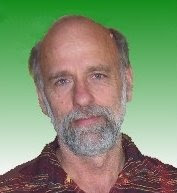 MRS. DALLOWAY (Marleen Gorris, Netherlands/UK, 1997). THEMES: PTSD (POST-COMBAT PSYCHOTIC DEPRESSION); WOMEN’S ISSUES. Dear, dear. How disappointing this film is, viewed just after reading Woolf’s novel. The screenplay has erased nearly all the fine edge of Woolf’s incisive characterizations. The men are all less woeful, the women all less strong, and one of the weakest women – Lady Bradshaw - here is as overbearing and menacing as her husband was made out to be in the novel, while Sir William is a sort of pussycat. In this film, it is not Lady Bruton who is closeted with the Prime Minister during Clarissa’s party, but rather it is Richard Dalloway who gets the private audience, on Lady Bruton’s behalf.
MRS. DALLOWAY (Marleen Gorris, Netherlands/UK, 1997). THEMES: PTSD (POST-COMBAT PSYCHOTIC DEPRESSION); WOMEN’S ISSUES. Dear, dear. How disappointing this film is, viewed just after reading Woolf’s novel. The screenplay has erased nearly all the fine edge of Woolf’s incisive characterizations. The men are all less woeful, the women all less strong, and one of the weakest women – Lady Bradshaw - here is as overbearing and menacing as her husband was made out to be in the novel, while Sir William is a sort of pussycat. In this film, it is not Lady Bruton who is closeted with the Prime Minister during Clarissa’s party, but rather it is Richard Dalloway who gets the private audience, on Lady Bruton’s behalf.The casting isn’t altogether bad. Michael Kitchen could have been quite good as the failed, hopelessly dependent Peter Walsh, but the lines he is given by screenwriter Atkins do not reveal the enormity of his spinelessness. Nor are Richard’s naivete and banal simplicity made clear. Rupert Graves is adequate as the hapless, psychotically depressed Septimus. No problems there. And Lena Headey is fine as the young Sally Seton. But Clarissa’s power and her complexity are missed entirely here, both in her younger and older personas. She’s made out to be a frivolous party animal. Nevertheless, both Natascha McElhone (the younger Clarissa) and Vanessa Redgrave (the older) do non-verbally convey the poise and demeanor of the novel’s Clarissa quite well. In the end, what we have here is “Mrs. Dalloway” lite; it’s a sort of beautifully filmed bore of a movie. In The Hours, we can provisionally accuse Stephen Daldry and David Hare, or their producers, of creeping male chauvinism when they substitute suffering for stamina in their female characters. But Mrs. Dalloway was made by women! What’s their excuse for misrepresenting Woolf’s vision of the strong women in her novel? Grade: B (06/03)



No comments:
Post a Comment